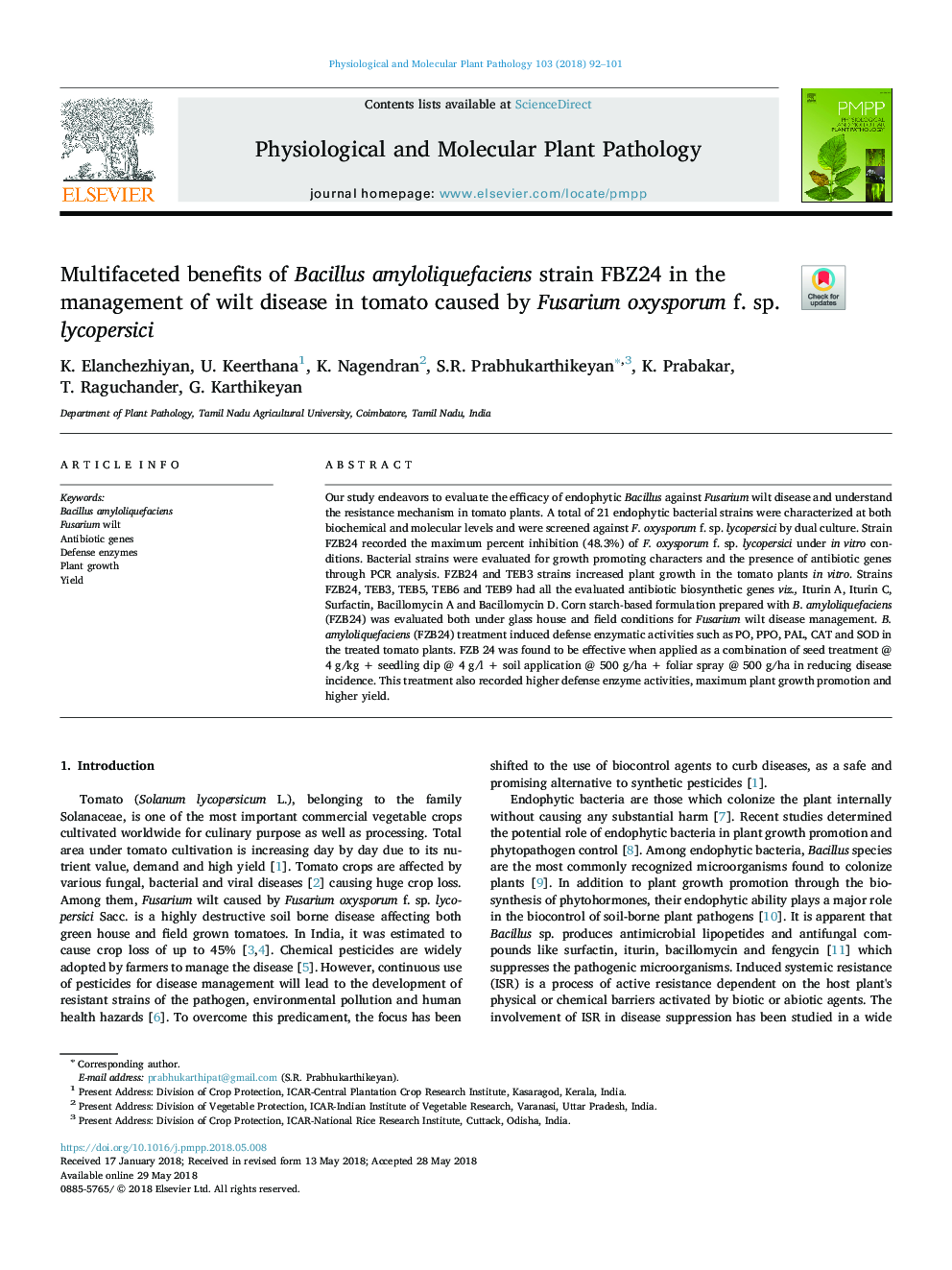| Article ID | Journal | Published Year | Pages | File Type |
|---|---|---|---|---|
| 8649179 | Physiological and Molecular Plant Pathology | 2018 | 10 Pages |
Abstract
Our study endeavors to evaluate the efficacy of endophytic Bacillus against Fusarium wilt disease and understand the resistance mechanism in tomato plants. A total of 21 endophytic bacterial strains were characterized at both biochemical and molecular levels and were screened against F. oxysporum f. sp. lycopersici by dual culture. Strain FZB24 recorded the maximum percent inhibition (48.3%) of F. oxysporum f. sp. lycopersici under in vitro conditions. Bacterial strains were evaluated for growth promoting characters and the presence of antibiotic genes through PCR analysis. FZB24 and TEB3 strains increased plant growth in the tomato plants in vitro. Strains FZB24, TEB3, TEB5, TEB6 and TEB9 had all the evaluated antibiotic biosynthetic genes viz., Iturin A, Iturin C, Surfactin, Bacillomycin A and Bacillomycin D. Corn starch-based formulation prepared with B. amyloliquefaciens (FZB24) was evaluated both under glass house and field conditions for Fusarium wilt disease management. B. amyloliquefaciens (FZB24) treatment induced defense enzymatic activities such as PO, PPO, PAL, CAT and SOD in the treated tomato plants. FZB 24 was found to be effective when applied as a combination of seed treatment @ 4 g/kg + seedling dip @ 4 g/l + soil application @ 500 g/ha + foliar spray @ 500 g/ha in reducing disease incidence. This treatment also recorded higher defense enzyme activities, maximum plant growth promotion and higher yield.
Related Topics
Life Sciences
Agricultural and Biological Sciences
Plant Science
Authors
K. Elanchezhiyan, U. Keerthana, K. Nagendran, S.R. Prabhukarthikeyan, K. Prabakar, T. Raguchander, G. Karthikeyan,
